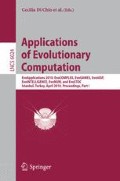Abstract
The emergence of Grim Trigger as the dominant strategy in the Iterated Prisoner Dilemma (IPD) on a square lattice is investigated for players with finite memory, using three different kinds of imitation rule: the traditional imitation rule where the entire data base of the opponent’s moves is copied, and the two more realistic partial imitation rules that copy only a subset of opponent’s moves based on information of games played. We find that the dominance of Grim Trigger is enhanced at the expense of some well known strategies such as tit-for-tat (TFT) when a player has access only to those moves observed in past games played with his opponents. The evolution of the clusters of Grim Trigger in the early stage of the games obeys a common pattern for all imitation rules, before these clusters of Grim Triggers coalesce into larger patches in the square lattice. A physical explanation for this pattern evolution is given. Implication of the partial imitation rule for IPD on complex networks is discussed.
Access this chapter
Tax calculation will be finalised at checkout
Purchases are for personal use only
Preview
Unable to display preview. Download preview PDF.
References
von Neumann, J., Morgenstern, O.: Theory of Games and Economic Behaviour. Princeton University Press, Princeton (1944)
Szabo, G., Fath, G.: Evolutionary games on graphs. Physics Reports 446(4-6), 97–216 (2007)
Smith, J.M., Price, G.M.: The logic of animal conflict. Nature 246, 15–18 (1973)
Smith, J.M.: Evolution and the Theory of Games. Cambridge University Press, Cambridge (1982)
Ohtsuki, H., Hauert, C., Lieberman, E., Nowak, M.A.: A simple rule for the evolution of cooperation on graphs and social networks. Nature 441, 502–505 (2006)
Nowak, M.A.: Five Rules for the Evolution of Cooperation. Science 314(5805), 1560–1563 (2006)
Axelrod, R.: The Evolution of Cooperation. Basic Books, New York (1984)
Nowak, M.A., May, R.M.: The spatial dilemmas of evolution. Int. J. of Bifurcation and Chaos 3(1), 35–78 (1993)
Szabo, G., Vukov, J., Szolnoki, A.: Phase diagrams for an evolutionary prisoner’s dilemma game on two-dimensional lattices. Phys. Rev. E 72(4), 47107 (2005)
Helbing, D., Lozano, S.: Routes to cooperation and herding effects in the prisoner’s dilemma game (May 2009)
Ariosa, D., Fort, H.: Extended estimator approach for 2x2 games and its mapping to the Ising Hamiltonian. Phys. Rev. E 71, 16132 (2005)
Bukhari, S., Adnan, H.A.S.: Using genetic algorithms to develop strategies for the prisoners dilemma. Asian Journal of Information Technology 8(5), 866–871 (2006)
Baek, S.K., Kim, B.J.: Intelligent tit-for-tat in the iterated prisoner’s dilemma game. Physical Review E (Statistical, Nonlinear, and Soft Matter Physics) 78(1), 11125 (2008)
Author information
Authors and Affiliations
Editor information
Editors and Affiliations
Rights and permissions
Copyright information
© 2010 Springer-Verlag Berlin Heidelberg
About this paper
Cite this paper
Wu, D., Antony, M., Szeto, K.Y. (2010). Evolution of Grim Trigger in Prisoner Dilemma Game with Partial Imitation. In: Di Chio, C., et al. Applications of Evolutionary Computation. EvoApplications 2010. Lecture Notes in Computer Science, vol 6024. Springer, Berlin, Heidelberg. https://doi.org/10.1007/978-3-642-12239-2_16
Download citation
DOI: https://doi.org/10.1007/978-3-642-12239-2_16
Publisher Name: Springer, Berlin, Heidelberg
Print ISBN: 978-3-642-12238-5
Online ISBN: 978-3-642-12239-2
eBook Packages: Computer ScienceComputer Science (R0)

